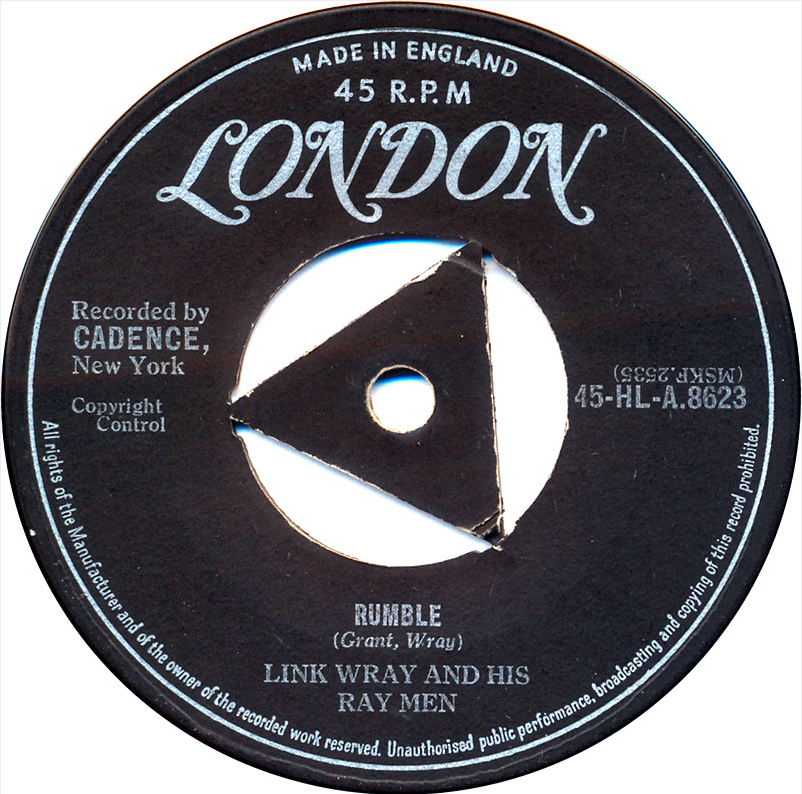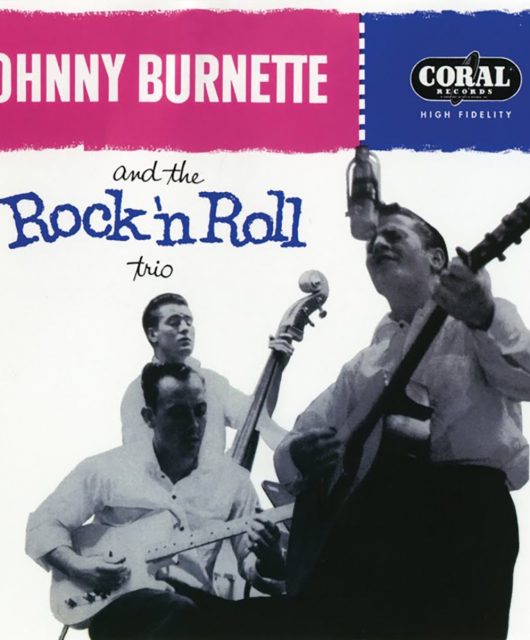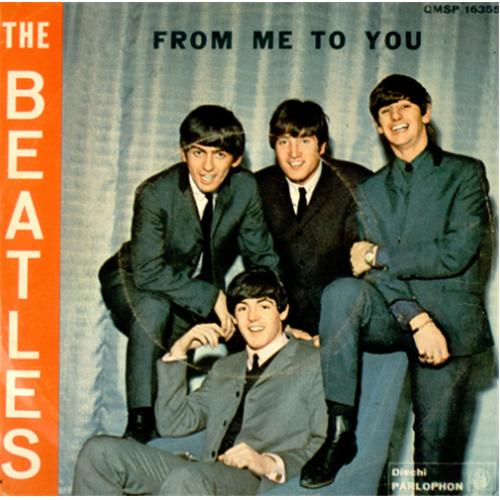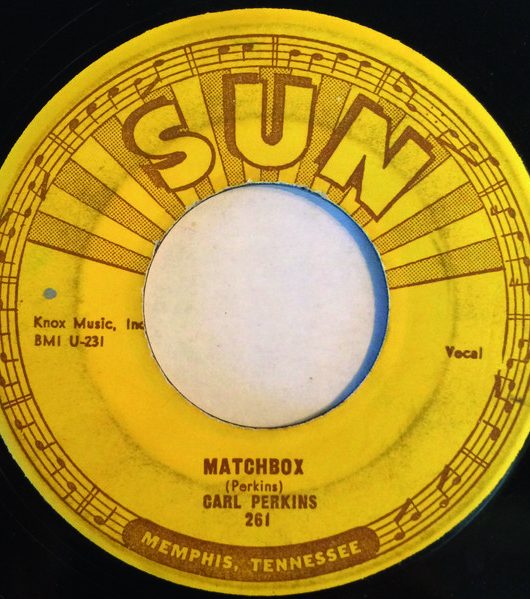Link Wray’s 50s instrumental Rumble practically invented the power chord, became the centre of a moral panic and inspired a whole generation to pick up the electric guitar – and it all happened spontaneously… Words by Jon O’Brien
Link Wray’s Rumble was deemed such a risk to the public by Middle America that it received a nationwide radio ban on its 1958 release. An impressive feat considering it contained not a single lyric. Indeed, still the only instrumental ever subjected to such censorship, the rock’n’roll classic managed to get everyone in a tizz with nothing more than an incendiary title and three distorted power chords.
Surprisingly, clean-cut harmoniser Phil Everly was partly responsible for the outrage. On hearing its game-changing two minutes and 25 seconds, he suggested altering original moniker Oddball to something that reflected its street fight vibes. The sound of Rumble, however, was all Wray’s. And like so many moments of musical genius, itcame about entirely by accident.
The guitarist and His Ray Men were warming up a Fredericksburg sock hop when host Milt Grant asked them to play The Stroll, a recent hit by Canadian doo-wop outfit The Diamonds. Oblivious to its success, Wray and co. instead improvised a song which, it’s fair to say, didn’t exactly resemble what was requested.
Profound Attitude
Accompanied by older brother Doug, who provided a shuffling rhythm with his sticks the wrong way round, and bassist cousin Shorty Horton, Wray strummed some rudimentary chords. But he forever changed the way they sounded by positioning a mic at the front of his amplifier, resulting in a distorted effect that made the crowd so frenzied the trio were asked to play it another three times.
Sensing Wray had tapped into something special, Grant funded a session at Washington D.C.’s U.S. Recording Studios with the stipulation that he received a songwriting credit. Reportedly it was laid down on just a primitive one-track Grundig tape recorder for just $57. However, Wray initially found it difficult to replicate its primal energy and it was only when he pierced the speakers with a pencil that Rumble transformed into the fuzzed-up favourite that would influence a generation.
This included Jimmy Page, who in 2008 documentary It Might Get Loud waxed lyrically about the track’s “profound attitude” before pulling out his best air guitar moves. Then there’s Pete Townshend, who in the liner notes for 1974’s The Link Wray Rumble wrote about how it inspired him to pick up his instrument of choice. Bob Dylan, who opened four shows during his 2005 Brixton Academy residency with the song, has described it as the best instrumental of all time.
But it’s not just 60s guitarists that Rumble has gripped. During Stephen Colbert’s late-night show, Iggy Pop revealed he “left school emotionally” after hearing it at the University of Michigan’s student union. The Fall’s Mark E. Smith told Wray himself in a joint interview with NME that the tune served as motivation whenever barking over abrasive post-punk became too much.

Royal Rumble
Rumble has also become a soundtrack staple. Alongside Dick Dale’s Misirlou, its use in Pulp Fiction proved Quentin Tarantino is just as shrewd a cratedigger as he is a cinephile. It’s also featured in Independence Day and the first episode of The Sopranos and, slightly less cool, an ad for a price comparison site.
Interestingly, Rumble almost never saw the light of day. Producer Archie Bleyer initially hated it, only releasing it through his Cadence label after his teenage stepdaughter gave her approval. But although the radio ban, implemented over fears the track would incite violence, prevented it peaking higher than No.11 on the US R&B chart and No.16 Pop, it has since sold more than four million copies.
That doesn’t include the many remakes Wray recorded in the late 60s, or the covers by everyone from surf rockers The Trashmen and beat combo The Dave Clark Five to big band leader Jack Nitzsche and jazz guitarist Bill Frisell, none of which come close to capturing the original’s sense of danger.
Danger was certainly something Wray knew all about. Born in 1929 to an American father and mother of Shawnee descent, he grew up in an impoverished part of Dunn, North Carolina, heavily populated by racists. “The cops, the sheriff, the drugstore owner – they were all Ku Klux Klan,” he once remarked.
Thankfully, the family eventually relocated to Virginia, where Wray worked as a cab driver by day, club singer by night, performing with siblings Doug, Ray and Vernon in The Palomino Ranch Gang and The Lucky Wray Band.
The Wild One
Any ambitions were derailed, however, when he was drafted into the US Army to serve in the Korean War. After contracting tuberculosis there, Wray spent a year in hospital where, following the removal of a lung, he was told he’d never sing again.
Of course, Wray would go on to defy these predictions with a body of work that spanned decades, genres and vocal styles, sporting a leather jacket and sunglasses throughout. But it was the wordless Rumble that undeniably defined the man.
And its fearsome chords have continued to reverberate since his death in 2005, too. Hailed as a progenitor of hard rock, punk and metal, the track was pivotal to Wray’s recent Rock And Roll Hall of Fame induction. It also formed the basis of 2017 music documentary, Rumble: The Indians Who Rocked The World. While a year later, Dan Auerbach’s Easy Eye Sound label unearthed Son Of Rumble, the previously unheard follow-up every bit as ominous sounding as its predecessor.
However, Wray was always keen to point out the way in which the song positioned him as a menace to society was unjust: “You can be wild, but not evil,” he once told a reporter. “There’s an evil, and there’s wild. And I was wild.”
Listen to Link Wray here
Read More: Wordless Wonders – Rock’n’Roll Instrumentals






